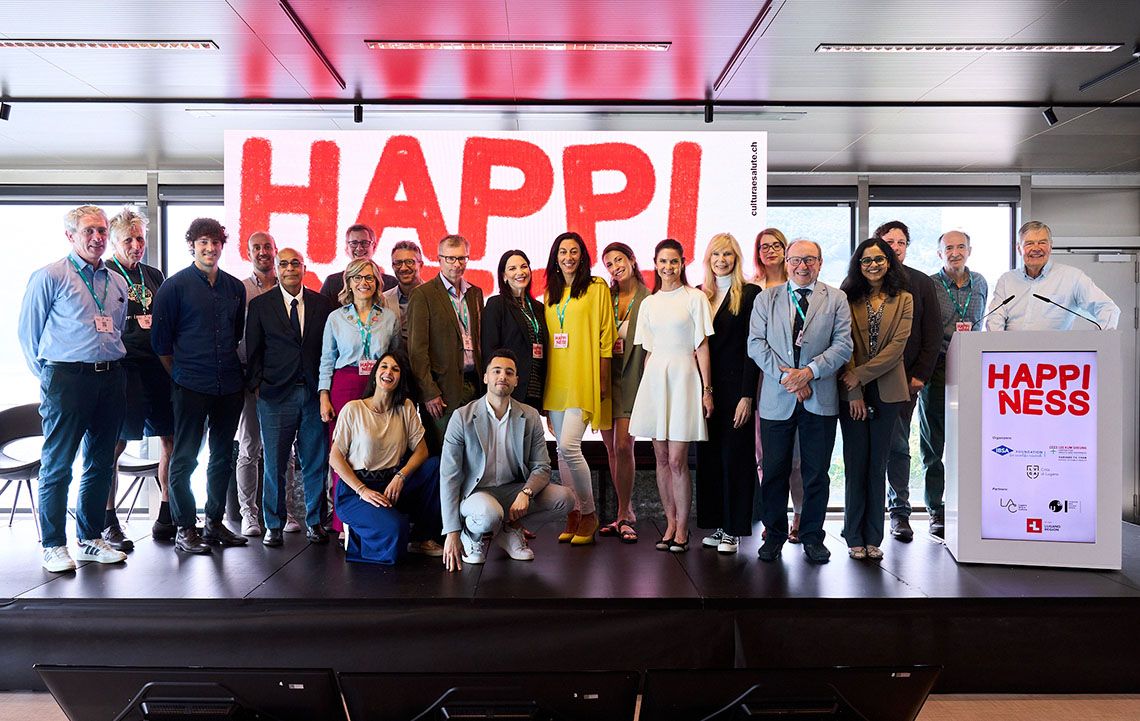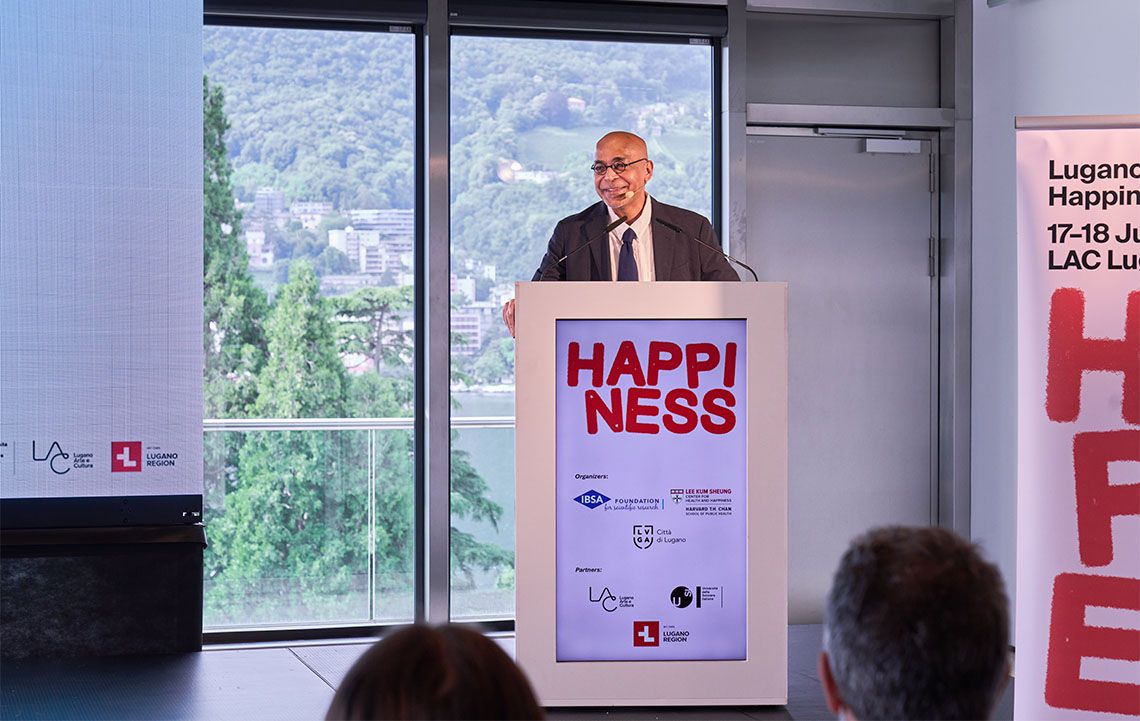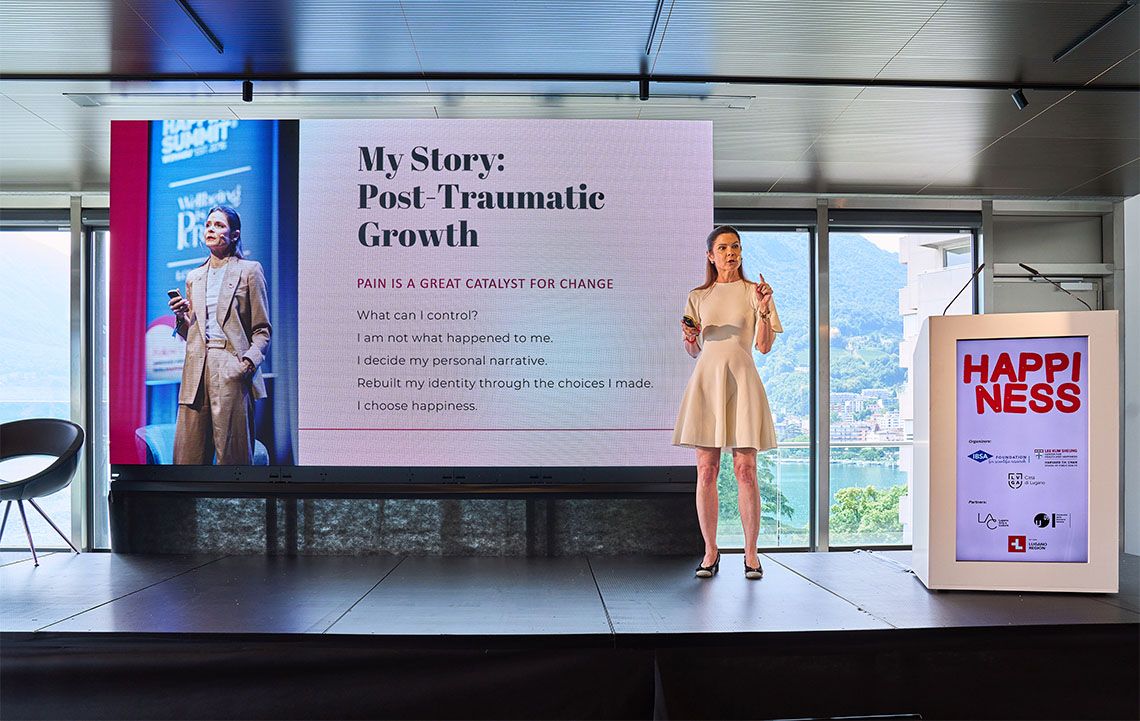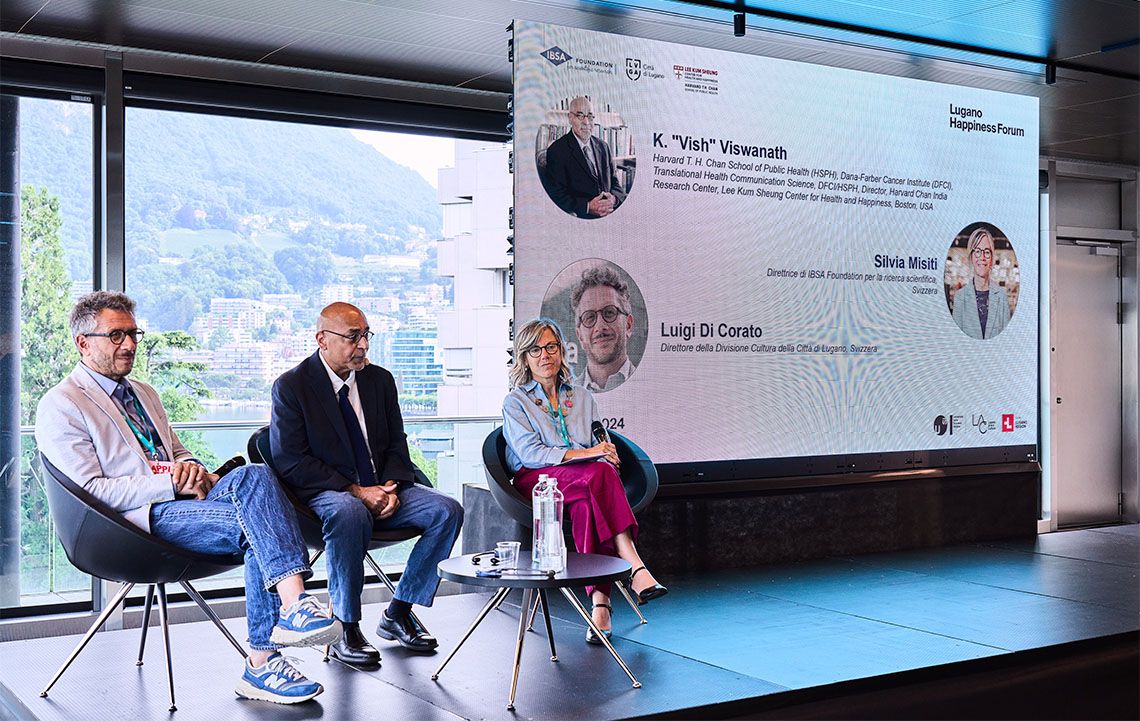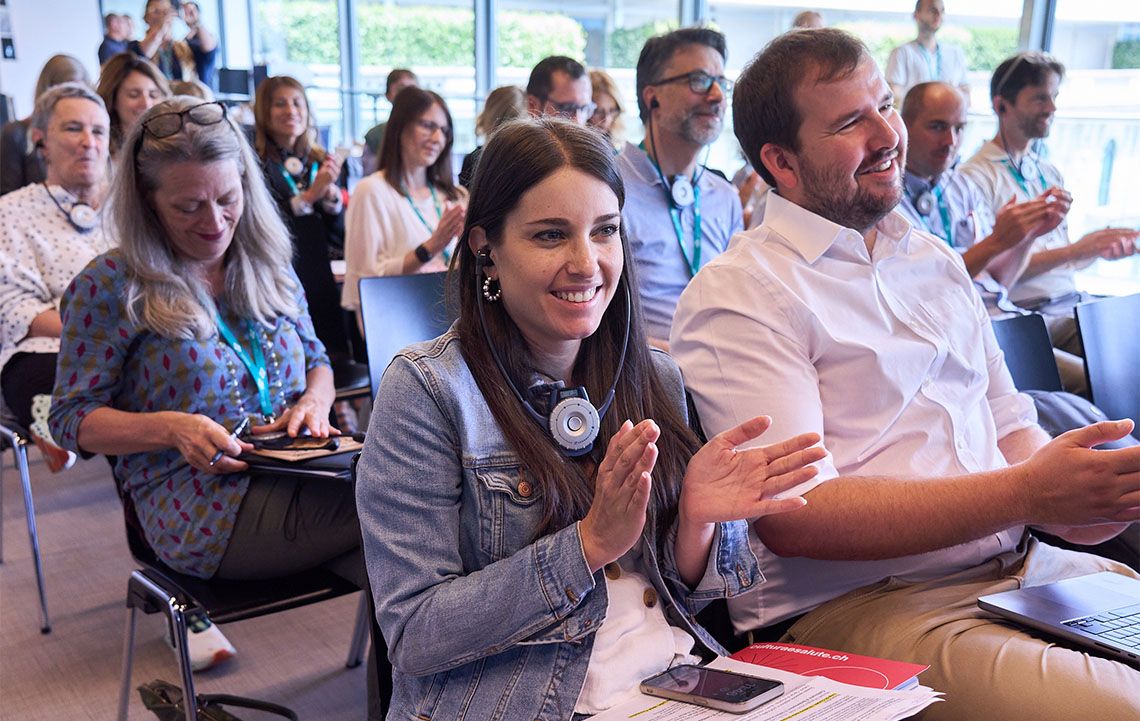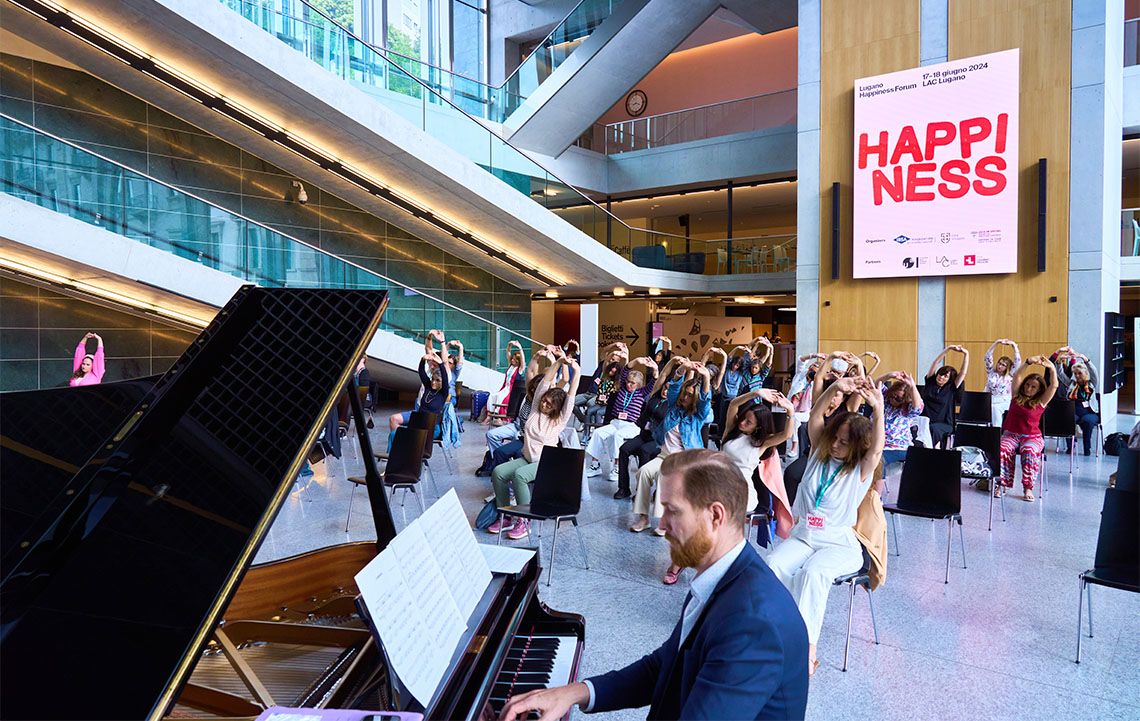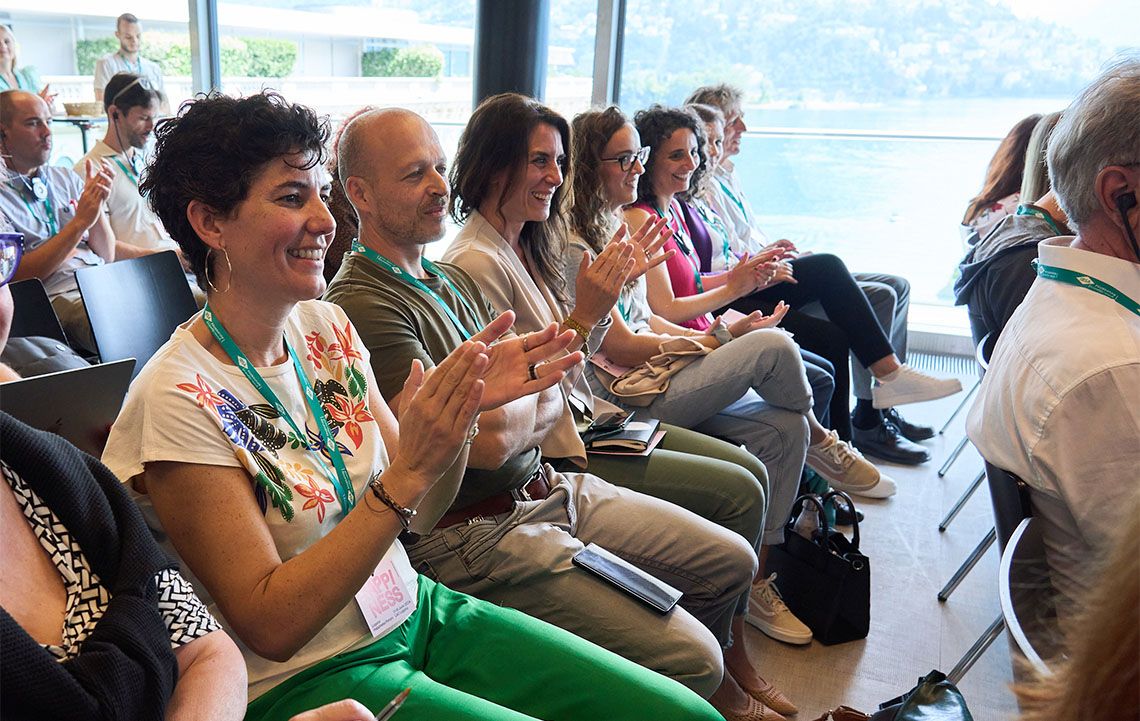The transition from an intangible element of the emotional sphere to a priority factor of human well-being is a done deal: scientific research is learning to study happiness.
The starting point is indicated by the World Health Organization (WHO), which defines health as “a state of complete physical, mental and social well-being and not merely the absence of disease or infirmity”: a broad concept that also includes happiness and which – despite being still complex and elusive – has profound implications for the individual and the collective well-being.
It is precisely from the awareness of the central role that happiness plays in modern society that the Lugano Happiness Forum, realised by IBSA Foundation for scientific research, by the Lee Kum Sheung Center for Health and Happiness in Boston (Harvard University) and by the City of Lugano, in collaboration with USI – University of Italian Switzerland, LAC – Lugano Arte e Cultura and Lugano Region. Held on June 17-18, 2024 at LAC in Lugano, the Forum was an opportunity to open the doors of this new front of knowledge also to the public. The event saw a huge attendance, with over 500 people present over the two days of proceedings.

